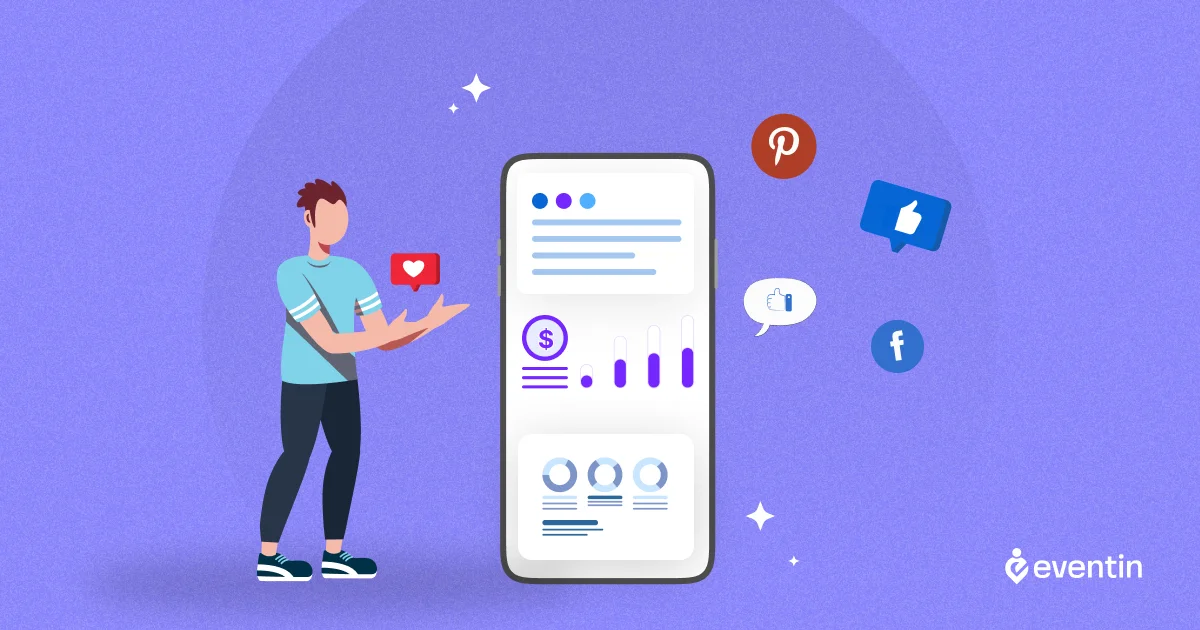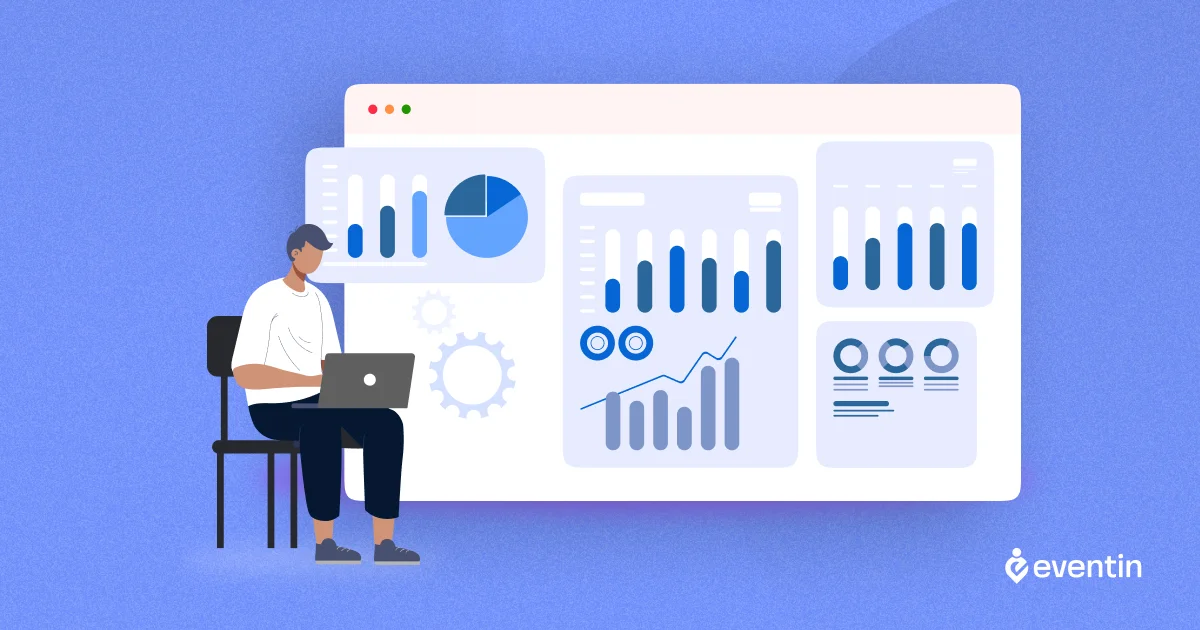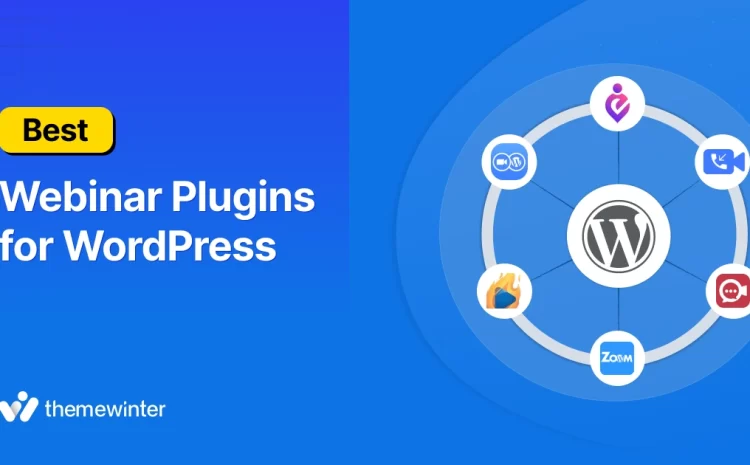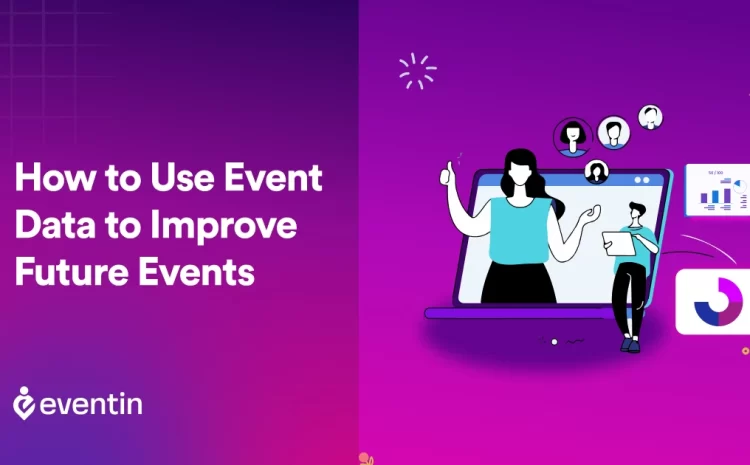How to Measure the Success of Your Event: 9 Useful Ways

Table of Contents
Planning an event takes time and resources, but once the last guest leaves, you need to know if all that effort paid off. Was the turnout what you hoped for?
Did people stay engaged? Did you achieve the goals you set out for the event?
Event organisers often face unpredictability, yet with a clear plan and defined measures, you can turn those challenges into smooth, meaningful results. The key is to set specific goals and decide on the numbers you’ll track to see if your event meets those goals.
In this guide, we’ll explain what makes an event successful and show you how to track simple metrics—like attendance, engagement, revenue, and feedback—so you can measure your next event with confidence.
Let’s get started!
What does event success really mean?
Event success isn’t the same for everyone. A nonprofit might call an event a success if it raised enough donations. A business conference might look at how many leads were collected. A community group could care most about how many new people showed up and connected.
Before you measure, you need to be clear about your own goals.
Ask yourself:
- Do you want more ticket sales?
- Do you want deeper engagement during sessions?
- Do you want sponsors to be happy with their exposure?
- Do you want to create long-term brand awareness?
Your definition of success will guide the metrics you track. If attendance is your top goal, you’ll measure registrations and check-ins. If engagement is more important, you’ll look at polls, Q&A sessions, or survey feedback.
The point is simple: success depends on what matters most to your event.
Set SMART goals before you measure
You can’t measure success without clear goals. That’s where the SMART framework helps.
SMART stands for:
- Specific – Define what you want to achieve. Example: “Sell 500 tickets.”
- Measurable – Make sure you can track it with numbers. Example: “Increase sponsor leads by 20%.”
- Achievable – Be realistic. If your last event had 100 people, aiming for 5,000 might not make sense.
- Relevant – Goals should match the purpose of your event. A fundraiser should focus on donations, not just attendance.
- Time-bound – Set a deadline. Example: “Reach 80% ticket sales two weeks before the event.”
🎯 SMART Event Goals
S – Define what you want to achieve
Example: “Sell 500 tickets.”
M – Make sure you can track it with numbers
Example: “Increase sponsor leads by 20%.”
A – Be realistic about your target
Example: From 100 to 200 attendees.
R – Align with your event purpose
Example: Fundraiser = donations, not just seats filled.
T – Set a clear deadline
Example: “Reach 80% sales two weeks before event.”
Setting SMART goals gives you a clear benchmark. When the event is over, you can look at your numbers and know right away if you hit the mark.
For example:
- A corporate training workshop might measure how many attendees completed feedback forms within 48 hours.
- A tech conference might track app downloads and session check-ins across two event days.
- A wedding planner might focus on guest attendance rate and satisfaction surveys after the event.
9 Key metrics to track for event success
Once you’ve set your goals, the next step is to decide which metrics will show if you met them. These are the most common and practical ones to track.
1. Registration and attendance analysis
Analyzing registration data after building an event management website offers a window into the potential popularity and reach of your event. It’s not just about how many are registered, but who they are and what they represent in your target demographic.
The actual litmus test, however, lies in attendance rates. A high conversion rate from registration to attendance is a clear indicator of the event’s appeal and relevance.
Utilizing tools like the Eventin event management plugin, event managers can seamlessly track these metrics, gaining invaluable insights into attendee behavior and preferences.
This analysis is crucial, as it measures the immediate success of your event and shapes the strategy for future ones, ensuring that every event is a step forward in understanding and catering to your audience.
2. Attendee engagement and satisfaction
Growing attendee engagement and satisfaction is another crucial point to make your event successful. It’s not just about counting heads; it’s about making every head turn with interest and every heartbeat with excitement.
But how do you measure these intangible yet vital aspects? It starts with active participation metrics – how many attendees are actively involved in sessions, networking, and interactive elements of your event.
Then, delve into the heart of attendee sentiment with post-event surveys and Net Promoter Scores (NPS). These tools offer direct insights into how attendees perceive your event, from the quality of content to the overall experience.
By measuring engagement and satisfaction, you transform feedback into your guiding star, leading your events to new heights of success and resonance with your audience.
3. Financial metrics and revenue analysis
Revenue isn’t just a number — it’s a reflection of your event’s success. Start with gross revenue to understand overall demand, then analyze the cost-to-revenue ratio to uncover true profitability.
Dig deeper into ticket type performance and promo code usage to see what actually drives conversions. These insights help you optimize pricing, boost marketing ROI, and plan smarter for your next event.
When you track the right financial metrics, you don’t just report success — you create a strategy for it.
4. Speaker and session performance monitoring
The heart of any event lies in its content, and the speakers and sessions often set the pulse of this content. So, it’s inevitable to create an event speaker page and analyze their performance to understand the event’s impact.
By measuring session attendance, audience engagement, and feedback, you gain valuable insights into what resonates with your attendees.
Consider the audience’s reactions to speakers, the participation in Q&A sessions, and the overall session ratings. These metrics not only reflect the speakers’ effectiveness but also guide future content curation.
In essence, a deep dive into the speaker and session analytics helps fine-tune your event strategy, ensuring every word is spoken and the topic discussed significantly contributes to your event’s narrative.
5. Social media and promotional impact
Social media mentions, hashtag usage, and engagement rates offer a window into the event’s reach and audience enthusiasm. Analyze how effectively promotional campaigns translated into event interest and attendance.

Did specific discount codes or social media campaigns drive ticket sales? How did the audience interact with the event online?
The answers lie in the digital footprints left on social media platforms and promotional analytics, making them indispensable tools for painting a comprehensive picture of your event’s influence and appeal.
So, leverage practical social media event marketing tips and analyze data regularly.
6. Long-term impact and returning attendees
Beyond the immediate buzz, the true testament of an event’s success lies in its enduring impact and the loyalty it fosters.
Long-term impact is measured not just in immediate feedback, but in the sustained engagement and recurrence of attendees. Tracking the number of returning attendees offers invaluable insight into the lasting appeal of your event.
It’s a clear indicator of the value you’ve created, turning first-time visitors into loyal followers. This metric is an influential gauge of your event’s resonance, reflecting how well it has been ingrained in the attendees’ minds and calendars.
By focusing on long-term impact and nurturing returning attendees, you cultivate a community that thrives on the experiences you offer and eagerly anticipates your next event.
7. Advanced analytics and custom KPI
To truly measure event success, advanced analytics and custom KPIs act as your strategic compass — helping event planners uncover deep, actionable insights that go beyond surface-level metrics.

Basic numbers show what happened. Advanced analytics show why.
Think session heatmaps, social media reach, or the lifetime value of attendees. Custom KPIs let you track what matters most to your event, whether that’s donations, leads, or repeat attendance.
With tools like the Eventin plugin for WordPress, you can turn data into clear insights and use them to plan even better events next time.
8. Sponsorship satisfaction analysis
Sponsorship satisfaction is a crucial barometer of an event’s success. Beyond mere financial support, sponsors seek value, visibility, and alignment with their goals.
To gauge their satisfaction, it’s essential to dive deeper than surface-level metrics. Consider conducting detailed interviews or surveys post-event to capture their unique perspectives.
Analyze the exposure they received, the quality of leads generated, and the alignment with their brand values. This proactive approach not only strengthens sponsor relations but also provides actionable insights for tailoring future events to create a mutually beneficial ecosystem for all stakeholders.
9. Post-event sales tracking
Assessing the success of an event doesn’t end with the closing remarks. One critical measure lies in the realm of post-event sales tracking.
This metric delves into the direct financial outcomes generated as a result of the event. It involves monitoring sales spikes, subscription uptakes, or service inquiries that can be directly attributed to event activities.

This data not only quantifies the immediate financial return but also sheds light on the effectiveness of the event in nurturing leads and converting interest into tangible sales.
By meticulously tracking post-event sales, organizers gain a clearer understanding of their event’s impact on the business’s bottom line, enabling them to refine their strategies for future events.
Bonus: How to measure virtual and hybrid event success
Virtual and hybrid events add a new layer to event tracking. It’s not just about who showed up — it’s about how people interacted online.
Here are key metrics to watch:
- Session Attendance – How many people joined live streams or on-demand sessions.
- Engagement in Chat & Q&A – Messages sent, questions asked, polls answered.
- Watch Time – Did attendees stay for the whole session or drop off early?
- Tech Performance – Streaming quality, log-in success, and reported issues.
- Hybrid Insights – Compare in-person check-ins with online log-ins to see which format drove more value.
These numbers help you spot what worked, what didn’t, and how to improve the balance between in-person and virtual experiences.
What are the event KPI templates and tracking tools
Tracking event success is easier when you have a simple framework to follow. That’s where KPI templates come in. They let you list your goals, set targets, and compare them with the actual results.
A basic template might include columns for:
- Goal (e.g., 500 registrations)
- Metric (e.g., ticket sales, survey responses)
- Target Number (e.g., 500 tickets)
- Actual Number (e.g., 460 tickets sold)
- Notes/Next Steps (e.g., improve early-bird promotion)
Helpful tools for tracking event success
- Google Analytics – Measure website traffic and conversions from campaigns.
- Email & Social Dashboards – See opens, clicks, and reach.
- Eventin Plugin for WordPress – Track registrations, attendance, engagement, and revenue in one place.
- Survey Tools (Google Forms, Typeform) – Collect post-event feedback quickly.
What are the common challenges (and how to solve them)
Even the best event plan runs into roadblocks. Here are a few problems you might face when measuring success — and how to handle them.
- Low survey response
Not everyone fills out surveys after the event. Solution: keep surveys short and send them out while the experience is still fresh. Offer a small incentive, like early access to next year’s tickets, to encourage replies.
- Scattered or incomplete data
If your registration tool, marketing platform, and survey software don’t “talk” to each other, you’ll end up with siloed information. Try integrating your tools or exporting everything into a single spreadsheet. This makes it easier to see the whole picture.
- Conflicting metrics
Sometimes one metric improves while another dips. For example, you might see higher attendance but lower engagement. Focus on the goal you set at the start. If engagement is your priority, dig into session participation and know where you can improve next time.
- Unclear goals
If you don’t know what success means for your event, you can’t measure it. Use the SMART framework: specific, measurable, achievable, relevant, and time-bound goals help you decide which numbers matter most.
Frequently Asked Questions (FAQ)
Even though you’ve finished the blog post with great attention, you still have some queries that you want to get answered. Here are some of these event survey questions you should check out to clear up all your confusion.
-
How can I tell if my attendees are engaged during the event?
Gauging attendee engagement is all about looking at the interactive aspects. Think about how many people are actively participating in your Q&A sessions, engaging in polls, or joining networking sessions. Also, don’t overlook social media chatter and feedback from your post-event surveys. These are your gold mines for understanding how involved and interested your audience was.
-
Why should I care about my event’s Net Promoter Score (NPS)?
NPS is like a window into your attendees’ minds. It tells you not just if people liked your event, but if they loved it enough to recommend it to others. It’s a simple question that can give you a world of insight into how your event is perceived and what you can do to make it even more impactful.
-
How does social media buzz affect my event’s success?
Think of social media as your event’s echo chamber. It amplifies everything – the excitement, the key moments, and even the areas that need improvement. Tracking hashtags, mentions, and overall engagement gives you a sneak peek into what worked, what resonated with your audience, and how far your event’s reach extended beyond the physical venue or virtual platform.
-
Why should I track returning attendees? Does it matter?
Absolutely! Returning attendees are like a pat on the back, telling you, “You did great!” They are a living testament to the value and appeal of your events. If people keep coming back, it means you’re hitting the right notes and creating experiences that resonate and stick.
-
How important is post-event sales tracking for understanding my event’s impact?
Post-event sales tracking is where the rubber meets the road. It’s about connecting the dots between your event and your business goals and seeing a spike in sales, inquiries, or sign-ups post-event? That’s a clear sign your event did more than just entertain; it motivated action, and that’s a big win!
Conclusion and next steps
Measuring event success goes beyond counting how many people attended—it’s about understanding how every part of your event performed. Start with clear goals, track the metrics that matter, and use the data to celebrate what worked and improve what didn’t.
With the right tools and a simple template, you can see patterns in how attendees behave and what they value. Whether you’re running a corporate seminar, a community gathering, or a virtual workshop, thoughtful measurement leads to better experiences for everyone.
When you’re ready, explore event tools and plugins that simplify this process. They’ll help you gather insights and let you focus on creating events that people remember and look forward to attending again.
🚀 Ready to Build Beautiful Event Pages?
Eventin makes it easy to create fully customized event pages, manage bookings, sell tickets, and run virtual or in-person events — all from your WordPress dashboard. Start free and see the difference!
🎉 Get the Free Eventin Plugin Now

